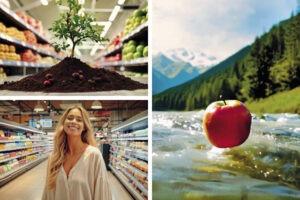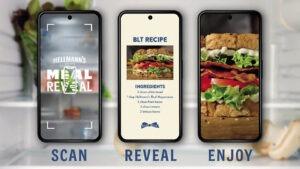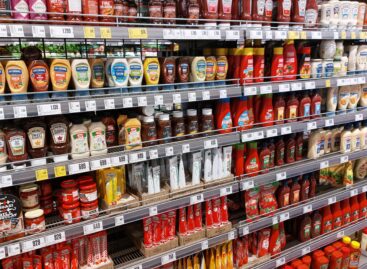Using AI in food marketing requires a conscious strategy
In the competition for market share, those companies have the best chances that can tune in to consumer needs the best and act the fastest to satisfy them. The pace is fast, competition is fierce and it is no wonder that AI use is becoming more widespread in the industry.
This article is available for reading in Trade magazin 2024/12-2025/01.
Developing content and creating advertising
We have already seen several examples of AI-based personalisation of marketing campaigns, based on consumer data and the creation of marketing content. In 2022 Kraft Heinz attempted to use the OpenAI software to permanently link the word “ketchup” to the Heinz brand. In July Mondelēz International celebrated the 200th anniversary of the Cadbury brand with the launch of a generative AI tool, giving users the opportunity to appear in a classic Cadbury ad. Recently SPAR Slovenia used AI to create promotional videos and in-store holograms on its own digital channels, to raise awareness of its customer loyalty programme. The retailer’s first AI-generated promotional videos were made by AI in full, using just a few store photos to guide the AI.

The Lunchables Dunkables inspire AI vs KI campaign highlights that kids’ imagination and creativity is unbeatable – even for AI (Photo: Business Wire)
It is developing as a creative tool
According to marketing managers, AI is now evolving mainly as a creative tool and the content it generates will soon become a staple in food marketing. This year research by Optimizely found that 75% of UK marketing managers already think of the experimental use of AI as important in the creation of personalised content. The Tested to Perfection report also observes optimism among consumers: more than 50% are happy for retailers and brands to adopt AI, provided it results in better user experiences and more relevant content. The direction of AI-based marketing projects is shaped by the relevance of AI and the issue of personalisation. Danone is cooperating with Microsoft to apply AI to various business processes, such as predictive forecasting and real-time changes. The Danone Microsoft AI Academy of the two parties seeks to enable 100,000 employees of the French giant to learn AI-powered skills. AI tools will provide deeper insights into current consumer needs and trends.

The hologram promoting the SPAR loyalty points promotion projected a 3D image of a JBL speaker
Tangible benefits
GlobalData analyst Hannah Cleland has told Just Food: AI will make the production and purchase of consumer goods fully personalised in the future. By using AI food brands can build better relationships with their buyers, as they can better tailor their offers and services to individual needs. Chatbots and shopping assistants are now basically obligatory in customer service, and online review processes nowadays serve as AI-based touch points. At Tortilla, a British fast food chain specialising in Mexican cuisine, the implementation of an AI-driven customer review system led to the number of reviews increasing by 262%, while the chain’s rating went from 4.3 to 4.7.

Hellman’s Meal Reveal helps you save money while reducing food waste
AI has its limits
AI also has its limitations. Scott Dixon, managing director of The Flava People told Just Food: in product development AI can’t take into account the subjectivity of taste perception, cultural differences and consumer expectations, or the unpredictability of human behaviour and reactions. What is more, as AI relies mainly on information already available on the internet, it relies on existing patterns that are ultimately human-derived rather than on new ideas. Still, according to a study published by software developer IFS in August, companies that don’t have a clear strategy for using AI in their supply chains won’t produce the results they expect. //
Related news
Forced paths: trends and decisions in 2026
🎧 Hallgasd a cikket: Lejátszás Szünet Folytatás Leállítás Nyelv: Auto…
Read more >PwC Global CEO Survey: CEO confidence at a five-year low
🎧 Hallgasd a cikket: Lejátszás Szünet Folytatás Leállítás Nyelv: Auto…
Read more >The keys to corporate growth in 2026: AI, acquisitions and rapid transformation
🎧 Hallgasd a cikket: Lejátszás Szünet Folytatás Leállítás Nyelv: Auto…
Read more >







